Best For The World Sustainable Food Brand B Corps Produce High-Quality, Net-Positive Impact Food and Drink
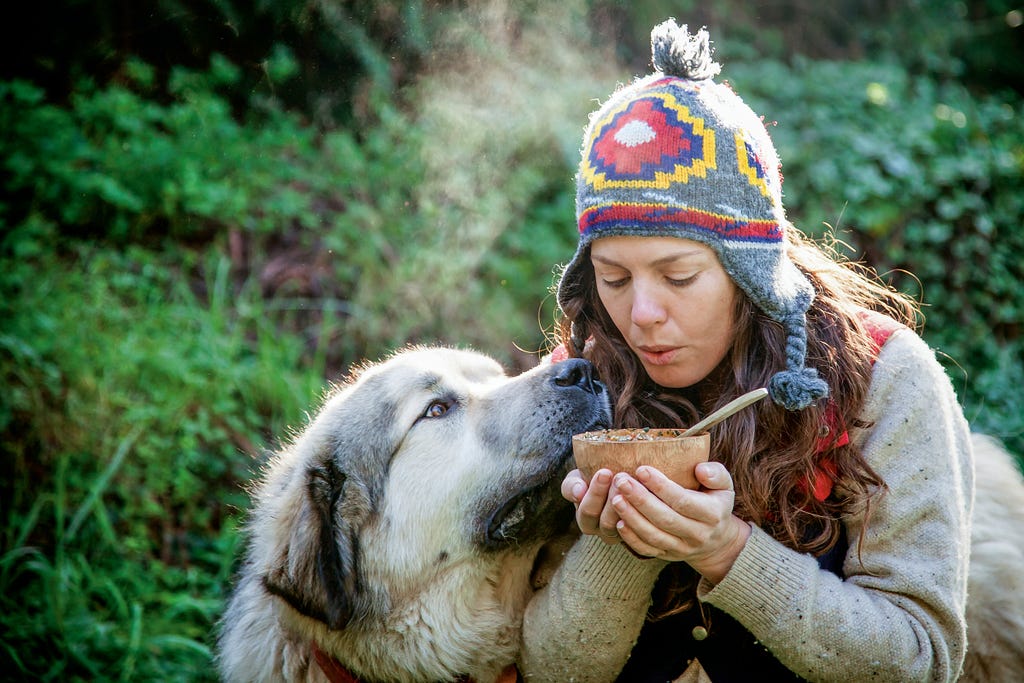
This article was originally published by B Lab.
A recently released U.N. report warned that the world’s food supply faces a threat from the climate crisis, as rising global temperatures threaten soil health and the future of our planet and its inhabitants. More than 500 million people live in areas affected by erosion linked to climate change and more than 800 million people are food insecure, yet nearly a third of the global food supply is wasted or lost.
When it comes to an issue affecting human survival like food and drink, those numbers don’t add up — and as the U.N. report notes, businesses and agricultural leaders must play a role in confronting and resolving these challenges.
Among those answering this call to action on the impact of agriculture on climate change are Certified B Corporations in the food and drink industry that with their partners are developing and advancing sustainable production practices. These sustainable leaders include Patagonia Provisions, a division of outdoor apparel retailer Patagonia, a longtime leader in environmental and social issues and a Best For The World honoree in the Overall, Changemaker, Community, and Environment categories.
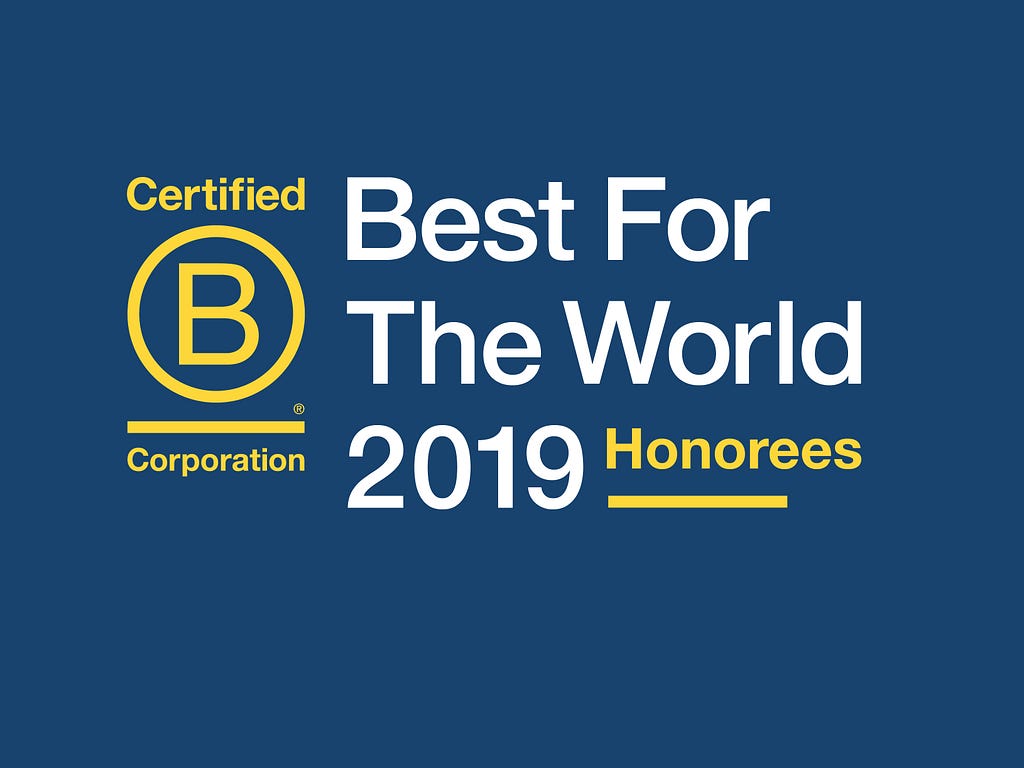
The 2019 Best For The World Honorees are building a more inclusive, regenerative economy focused on having a positive impact for all stakeholders.
Patagonia Provisions is in business to save our home planet. Founded by Yvon Chouinard in 2012, the company offers ethically and sustainably sourced food products out of its Sausalito, California-based headquarters. A B Corp, the company is recognized for re-examining best practices in food sourcing, utilizing regenerative organic growing methods, and working with like-minded advocates and producers to find solutions to the important environmental issues facing the food industry.
“At Provisions everything we make has a reason for being: to fix a broken food system. We accept that industrial production methods are destroying the Earth, so we’re leaving this extractive mentality behind and moving on to a regenerative one that includes Regenerative Organic Certification,” says Birgit Cameron, managing director for Patagonia Provisions.
We talked with several other Best For The World honorees in the sustainable food and drink industry to learn how they consider the impact of agriculture on climate change and build a better world through their everyday operations. In addition to Patagonia Provisions, these B Corps include:
- Jeni’s Splendid Ice Creams (Community), an Ohio-based ice cream company with 38 shops and retail products available online and in nearly 3,000 grocery stores.
- Hilary’s Eat Well (Changemaker; Community), a Kansas-based sustainable plant-based food brand dedicated to nourishing bodies and the environment.
- North Coast Brewing Company (Environment), a craft beer pioneer based in California, where it operates a taproom and restaurant that includes a jazz venue.
- Veritas (Changemaker), a leading organic supermarket chain based in Barcelona, Spain.
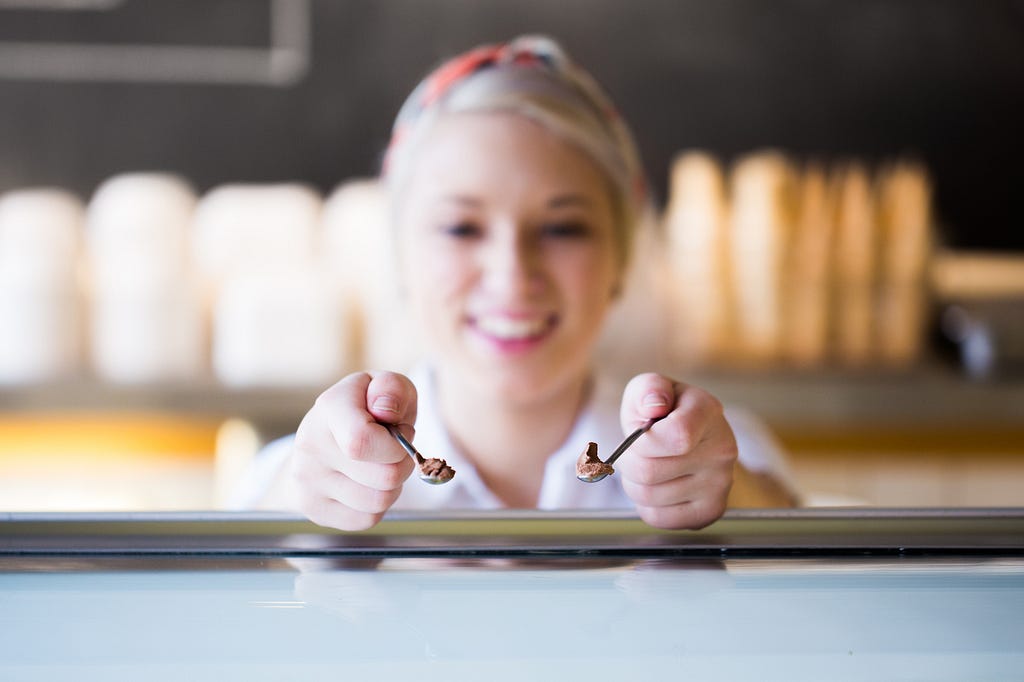
What business practices does your B Corp use to operate in a more sustainable or regenerative way that other businesses could adopt? As a sustainable leader, what plans do you have to expand these practices in the future?
Jeni’s Splendid Ice Creams: On Earth Day 2019, we continued our march toward zero-waste in shops as we launched our composting program across the country with a goal to divert more than 150,000 pounds of annual shop waste from landfills. Currently, 95% of what you buy in a Jeni’s scoop shop can be reused, recycled or composted. This was a huge team effort that took a lot of coordination — working with multiple composting partners, both big and small, across multiple cities and states. With our shop locations in retail centers and neighborhood districts, our hope is that we can create a model that neighboring businesses in our communities can piggyback on so they can develop their own composting programs.
North Coast Brewing: Our brewery is TRUE Zero Waste Platinum Certified, and we diverted 98.7% of our solid waste from landfills in 2018. North Coast Brewing is also in the top 25% of breweries in the United States for energy efficiency. Since June 2013, our solar array has produced nearly 500,000 kWh of energy — the equivalent to saving CO2 emissions from 41,682 gallons of gasoline. In addition to waste diversion and energy efficiency, the brewery is focused on using only high-quality ingredients and has 14 core beer brands Non-GMO Project Verified.
Patagonia Provisions: One of the things we are most excited about to date and something we are really focused on for the future is the work we’ve put into the Regenerative Organic Certification. What we’re doing to nature in the way we grow our food may be the single most dangerous and destructive thing we’re doing to the planet. Industrial food production damages the Earth in multiple ways — through overuse of chemicals, the reduction of biodiversity, putting GMOs in the food supply, loading food with antibiotics — and all the while, our food production system is also one of the biggest contributors to climate change, filling our atmosphere with massive amounts of CO2. Regenerative Organic Certification is a tool to change the impact of agriculture on climate change, and one we suggest every brand in the food and apparel space consider joining.
How do you work with business partners to promote sustainability and inclusion throughout your supply chain?
North Coast Brewing: North Coast Brewing’s innovative partnership with a local farm, Fortunate Farm, on the implementation of a closed-loop composting system is a key aspect of our One Pint at a Time Initiative, which highlights our sustainability and philanthropy efforts. The brewery works closely with Fortunate Farm on carbon sequestration and carbon farming projects while providing the farm with spent grain used to grow the heirloom vegetables served in our brewery’s taproom and restaurant. In 2018, Fortunate Farm composted 1.65 million pounds of North Coast Brewing’s spent grain.
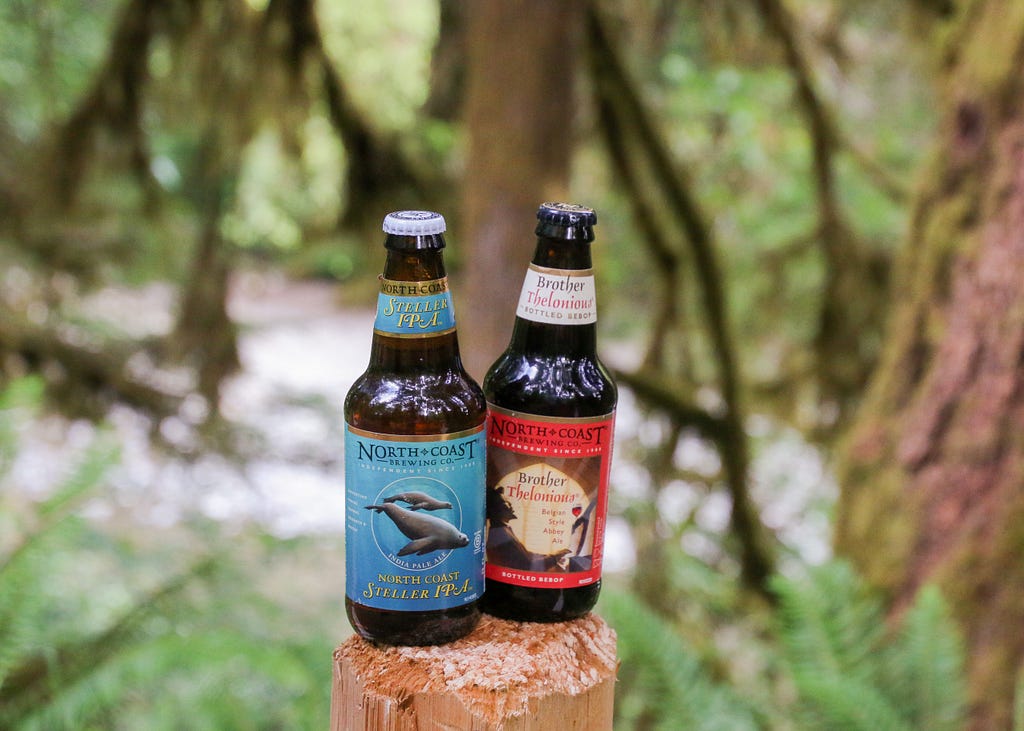
Hilary’s Eat Well: Looking at the whole system has always been important to us. We don’t only want to know where an ingredient comes from, we also want to know more about how it’s grown, how it’s harvested, how it’s processed before it arrives to our facility, and how the production of that ingredient impacts the local community from which it came. We communicate these details through a digital supplier survey, asking each of our partners to consider and report their own social and environmental sustainability efforts yearly. Even if a supplier isn’t doing additional work to create a more inclusive economy or monitor their environmental impact, we feel like just having that simple conversation can inspire them — and that’s what will create a ripple of change. It’s saying, “This is important to us, and we think you should be thinking about it too.”
Veritas: We communicate our values and the criteria of the B Impact Assessment to all of our suppliers so they understand the social and environmental aspects of the assessment and B Corp certification. In addition, we are working on a guide to “buying green” about various aspects that a business can pursue, such as improvements in packaging. For example, we work with our suppliers to improve their packaging by reducing the amount, using Forest Stewardship Council-certified paper or cardboard, replacing plastic with paper whenever possible, or using compostable materials in place of plastic.
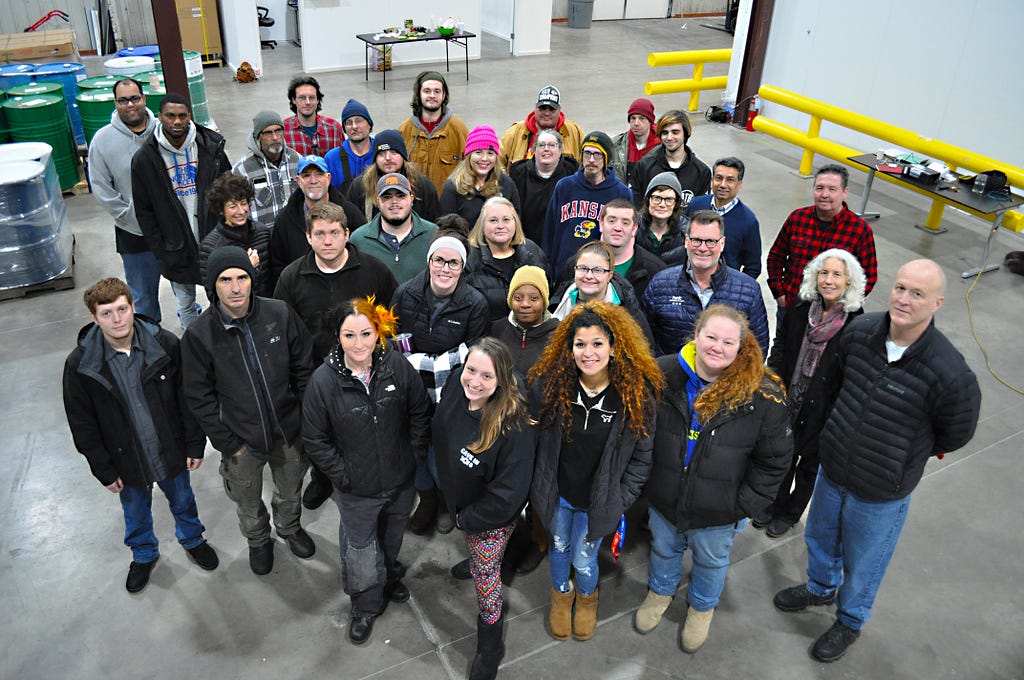
How does your B Corp, as a Best For The World honoree, Vote Every Day for a better future? How do you help other businesses and customers do the same?
Jeni’s: In the summer of 2019, inspired by B Lab’s Inclusive Economy Challenge, Jeni’s employed four interns from lower-income urban neighborhoods by partnering with the Columbus Urban League’s REAL Potential Youth Empowerment Program. We hope to set an example for other companies. We have a choice of who to hire, intern or otherwise. By partnering with the nonprofit Urban League, we have opened doors to new employees who might not find us.
Hilary’s Eat Well: To us, Voting Every Day is about asking yourself, “What can I do right now, no matter how small, to make a better future?” It’s about those small moments and choices that add up to big change. In our facility, we purchase from other B Corps whenever possible. The coffee that fuels the office is from Grounds for Change. The sterile food-safe gloves we use are from Eagle Protect. Those are small purchases that over time help support businesses that are also striving to do good for the world. We’re excited to put our dollars behind companies who strive to be socially, environmentally, and economically conscience.
What does your business gain as a member of the B Corp community? Why would you encourage other businesses to join the B Corp community?
Jeni’s: For Jeni’s, the three primary benefits of being a part of the B Corp community are education, validation, and inspiration. First, our B Impact Assessment each year teaches us ways we can reduce our footprint, make our workplace more fair and inclusive, and be better corporate citizens in our community. Second, our progress is validated by the independent B Lab. We aren’t just patting ourselves on the back — we have public accountability to our social and environmental initiatives. Finally, and maybe most importantly, are all the ways we are inspired by the diversity of B Corps — in size and industry. They are doing innovative and sustainable work. We learn from more well-known international companies like Patagonia to smaller regional ones such as software firm Ingage Partners in Cincinnati, Ohio.
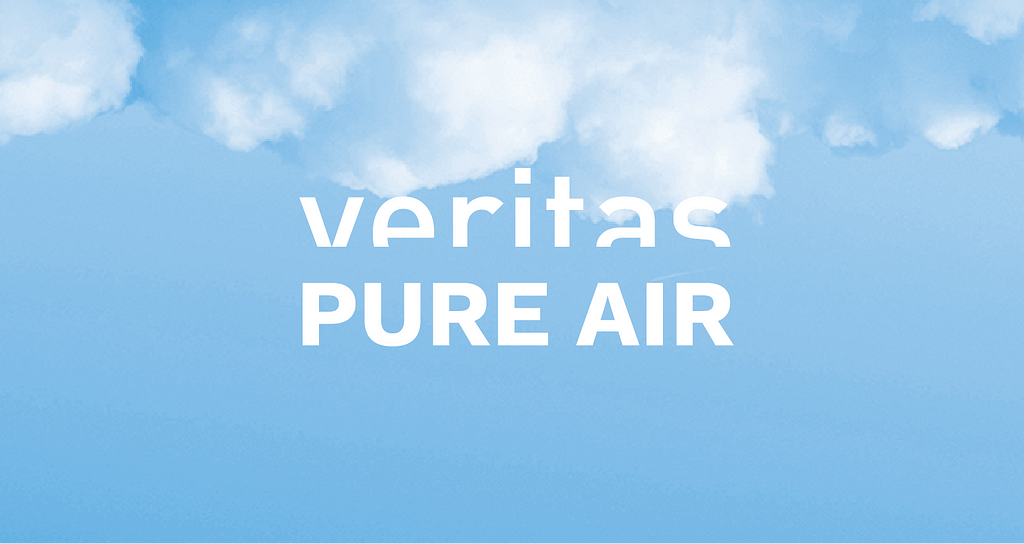
Patagonia Provisions: In our time of sustained environmental and social crisis, no business can afford to ignore the effects of its products and operations. We are past the time when any business can legitimately ask its employees to leave their values and humanity at home. And no business can any longer afford to, year after year, pursue minor incremental efficiencies while forgoing opportunities to help reweave the social fabric and regenerate rather than deplete the health of the natural world. It’s an honor for Patagonia Provisions to be a part of the B Corp community — we gain so much from this group of friends and fellow businesses.
Hilary’s Eat Well: Going through the B Lab assessment has helped us better understand where we can implement social and environmental policies that can really make a difference. When Hilary’s first took the B Impact Assessment in 2014, we were just above the required minimum score to pass. With the encouragement of B Lab, we set tangible and measurable goals to improve our score over the next few years. That’s one of the best things about being in this community — we’re all committing to improve over time.
Veritas: Being a B Corp allows us to be part of a new generation of business leaders who know that companies will need to be leaders by taking into account the social and environmental impact and taking care of our workers and our suppliers. We encourage our nearly 1,000 suppliers to become B Corps so we can promote positive change together. As of today, we have fruits and vegetables, reusable bottles, canned foods, and many other products from B Corps, so we are able to offer our customers the opportunity to, with their purchases, change the world.
B the Change gathers and shares the voices from within the movement of people using business as a force for good and the community of Certified B Corporations. The opinions expressed do not necessarily reflect those of the nonprofit B Lab.

Sustainable Leaders Reducing the Impact of Agriculture on Climate Change was originally published in B the Change on Medium, where people are continuing the conversation by highlighting and responding to this story.
Source: B the Change
